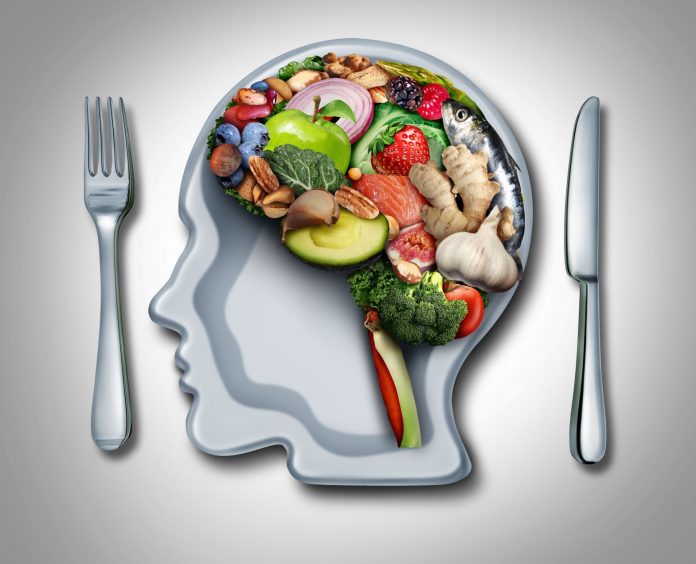Just like any organ, the brain is hungry for energy.
It accounts for more than 20% of our energy demands, despite only being 2% of our bodyweight.
So, it is vital we supply our brain with the right fuel because its structure is reliant on good nutrition.
The integrity and function of the brain relies on it being given the right building blocks for its nerve cells as well as the neurotransmitters that pass messages between them.
In addition, the wrong kind of food can cause untold damage – for instance, by inflaming the brain or compromising its blood supply.

Without the right balance of various nutrients, the brain suffers – in the long and short term (brain fog, sluggish thinking and the like).
One of the major modifiable risk factors for dementia is a chronically poor diet. Choosing wisely is critical.
So, what’s important to include? Firstly, antioxidants seem very important. These are compounds that help counter inflammation in the brain and body. Chronic inflammation is undoubtedly bad for you and is a risk factor for dementia and many other chronic diseases.
Antioxidants help mop up free radicals that drive this inflammation. Good antioxidant sources include vegetables (especially green leafy ones), fruits (such as berries), nuts, wholegrains and seeds. Diversity is key, so eat the rainbow.
Help keep independent and fair Sunshine Coast news coming by subscribing to our free daily news feed. All it requires is your name and email. See SUBSCRIBE at the top of this article
Next, fibre seems to be a critical factor in brain health. Fibrous foods include vegetables – cruciferous ones including broccoli, cauliflower and kale are particularly good – and fruit.
Fruit is best consumed whole rather than as a juice as the latter lacks fibre and often has plenty of sugar. Fibre keeps our cholesterol levels down and nourishes our gut bacteria, helping keep inflammation in check.
Wholegrains are also a good source of fibre – just make sure you don’t have too many refined grain products such as white bread – and also an important source of glucose, which is the key energy source of the brain.
Omega 3 fatty acids are critical for brain function, helping maintain the walls of the nerve cells. They also help combat inflammation. We cannot produce them ourselves and so rely on our diet to supply them.
Cold-water fish (preferably wild caught) is the most popular source, so load up on salmon, mackerel or the like. These fatty acids also appear in vegetarian sources such as seaweed, chia, flaxseeds and walnuts.

Though it may seem surprising, fat is also vital for the brain. Much of the brain is made up of this macronutrient, but it’s important to preference unsaturated (good sources include avocados, olive oil and certain nuts) over saturated fat.
The latter is commonly found in dairy and red meat and can cause inflammation and blood-supply problems.
The brain is reliant on many vitamins and minerals for optimal functioning, especially B vitamins. These can be obtained from eating green leafy vegetables, wholegrains, legumes and eggs.
They are also found in meat and fish. Liver seems to be especially densely packed with these vitamins.
Like stories about Sunshine Coast people doing great things? Help us deliver more by registering for our free daily news feed. All it requires is your name and email. See SUBSCRIBE at the top of this article
If this all sounds a bit complicated, help is at hand. All these macro and micronutrients are found in the Mediterranean diet and a similar one known as the MIND diet.
Information about these can be found in my book, Mind Your Brain. Both have been shown to keep the brain in good health.
And a final but very important point: go easy on sugar. It is toxic to the brain, especially when consumed excessively over a long period. See it as a treat rather than a staple.
- Kailas Roberts is a psychogeriatrician and author of Mind Your Brain: The Essential Australian Guide to Dementia, now available in bookstores and online. Visit yourbraininmind.com or uqp.com.au





